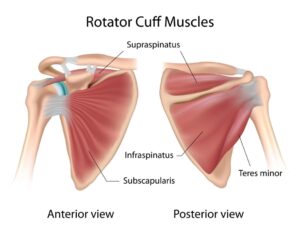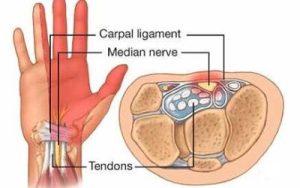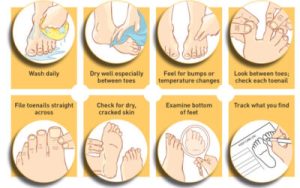Latest News and Health Information

Covid-19 Update on Telehealth/Telephone Fees
In the interests of the sustainability of General Practice, the Federal Government is allowing practices to resume usual billing practices.
From Tuesday 7th April 2020, our original practice fees will apply.

SUNDAY APPOINTMENTS
Please be advised that we are still consulting on Sunday’s from 8.30am – 12pm.
Consultations will be by telephone however patients can be seen face to face if necessary.
If you require a Sunday appointment please call to book during the week.
If a patient requires an urgent Sunday on the day appointment, bookings can ONLY be made online.


Patient Care During The Pandemic
Glen Iris Medical Group is committed to providing continuing care to our patients during the COVID-19 pandemic.

Novel Coronavirus
Novel Coronavirus
Please read the website below for updates and information on the Coronavirus.
If you feel you meet the criteria and could possibly have Coronavirus ring the Department of health number 1800 675 398

Melbourne Pathology
Melbourne Pathology will be closed the following days:
Saturday 11th April – Easter Saturday
Saturday 25th April – Anzac Day

Easter Sunday
The Clinic will be closed Sunday 12th April for Easter Sunday.

Public Holiday
We will be open on Monday 27th January 2020 from 9am – 12.30pm

National Bowel Cancer Screening Program
The Cancer Council recently ran GP education at Glen Iris Medical Group on the National Bowel Cancer Screening Program. We learned that our area – South East Melbourne has one of the the lowest screening rates within the program. We also learned that if 100,000 people without symptoms screen for Bowel Cancer with a simple test kit – the statistics show there will be 19 deaths in that population. If 100,000 people have no screening at all, there will be 60 deaths within that population.

Holiday Period
All the Doctors and Staff at Glen Iris Medical Group would like to wish all our patients a happy, healthy and safe holiday period.

Common Issues in General Practice: Eating Disorders
Eating disorders are thought to affect more than one million Australians and many of these people will never seek help or treatment for their condition.

Preserving Fertility: The Egg Freezing Process
In recent years, there has been a notable increase in women choosing to preserve future fertility through a process commonly referred to as ‘egg freezing’.
Egg freezing allows a woman to store mature eggs for an indefinite length of time. The aim being to allow a woman a chance of achieving a pregnancy at a later stage of life.

45-49 Health Check
This is a one off opportunity for a thorough health check with our Nurse and your usual GP.

We Welcome – Dr Pearl Mak
We are delighted to introduce patients to Dr Pearl Mak.

Thunderstorm Asthma and Hay Fever by RN Robyn Holmes
Grass pollen season (October- December) brings the chance of thunderstorm asthma and hay fever. If you suffer from hay fever or asthma, it can be serious and life threatening, if not managed well. Although it does not happen every year, we must prepare ourselves for an epidemic thunderstorm asthma. If you have asthma or hay fever it can trigger severe asthma symptoms if not managed well. This is highest in adults who are sensitised to grass pollen and have seasonal allergic rhinitis even without known asthma.

Rotator Cuff Injuries
The rotator cuff is the name used to describe the group of muscles and tendons that surround and support the shoulder joint and allow movement in different directions.
There are four muscles that make up the rotator cuff. These are the supraspinatus, subscapularis, infraspinatus and teres minor.

Common Issues in General Practice: Carpal Tunnel Syndrome
Carpal Tunnel Syndrome is a condition that affects the wrist, causing numbness, tingling and pain in the affected hand. It can affect one hand only or occur bilaterally. It seems to affect women more frequently than men.
In order to understand how carpal tunnel syndrome develops, it helps to have a bit of understanding of the anatomy of the wrist. If we were to look at a cross section through the wrist, there is a passageway, or ‘tunnel’ about 2cm wide that allows passage of the nerves, tendons and blood vessels from the forearm to the hand.

HealthEngine Medical Booking Platform
Firstly, we would like to reassure our patients that Glen Iris Medical Group withdrew all association with HealthEngine over a year ago, when it was revealed patient’s had unknowingly consented to their 3rd party referral process.

Foot care for people with Diabetes
Foot and leg problems are very common for people with Diabetes. Problems with the feet and legs can be very difficult to treat if they are not detected and managed early.
Diabetes can cause decrease circulation in the feet and lower legs which means any wounds sustained can take a very long time to heal. Diabetes can also cause nerve damage in the extremities, also known as ‘diabetic neuropathy’. This can make the feet less sensitive to pain or to extreme temperatures, meaning that wounds such as cuts, abrasions or burns may go unnoticed.

Premenstrual Syndrome
Premenstrual syndrome or PMS is the term used to describe a wide variety of physical and emotional symptoms that women commonly experience in the days leading up to a menstrual cycle (period). They can also continue for the first few days of a period.
